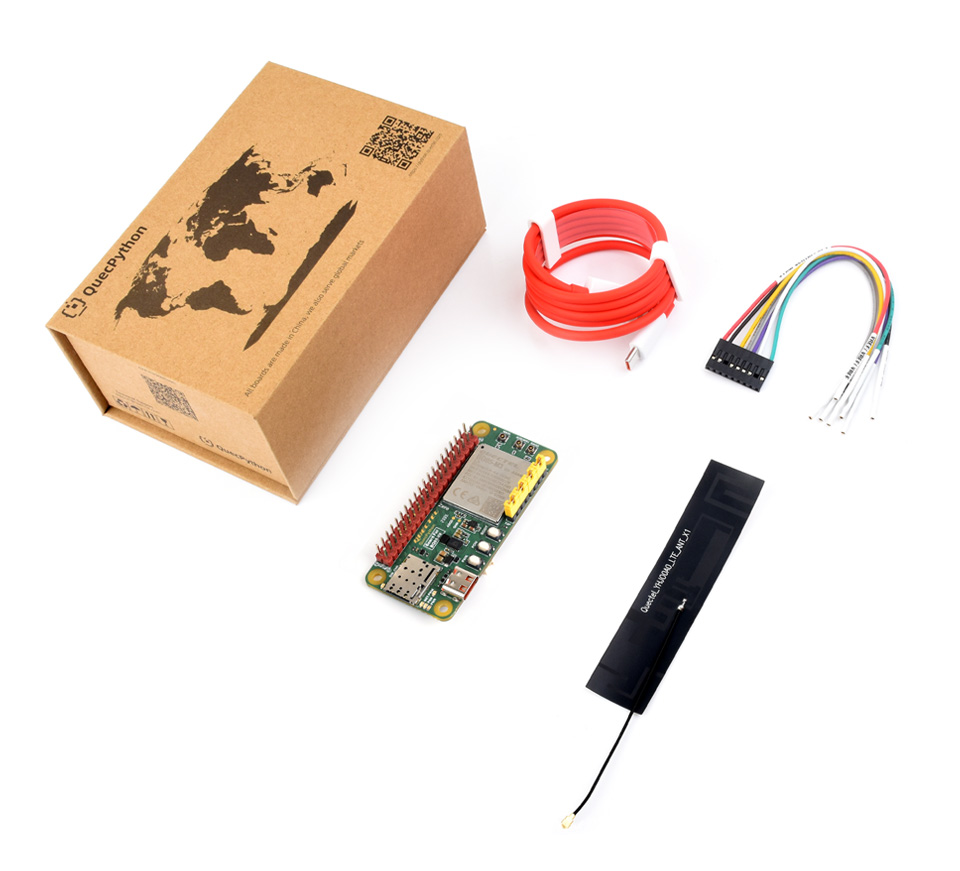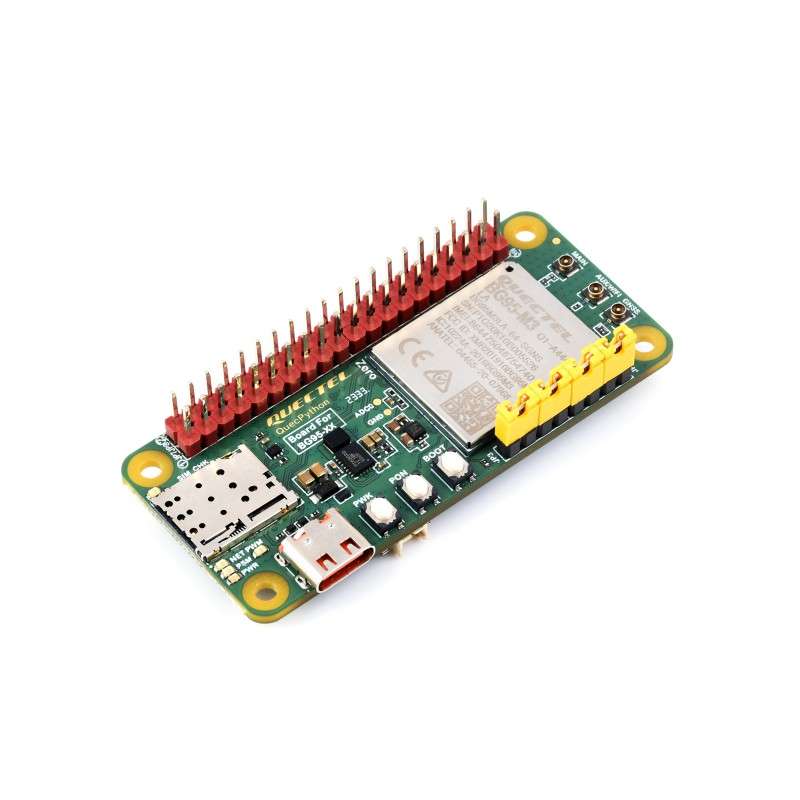





RLX COMPONENTS s.r.o. , Electronic Components Distributor.
RLX COMPONENTS s.r.o. , Electronic Components Distributor.
BG95 EVB Development Board Designed For QuecPython, LTE / EGPRS GNSS Positioning (WS-27094)
BG95 EVB Development Board Designed For QuecPython, Low Power Consumption, Supports LTE / EGPRS Communication And GNSS Positioning
Compact & Portable Development Board Designed for QuecPython
Supports LTE Cat M1 / LTE Cat NB2 / EGPRS Communication, GNSS Positioning
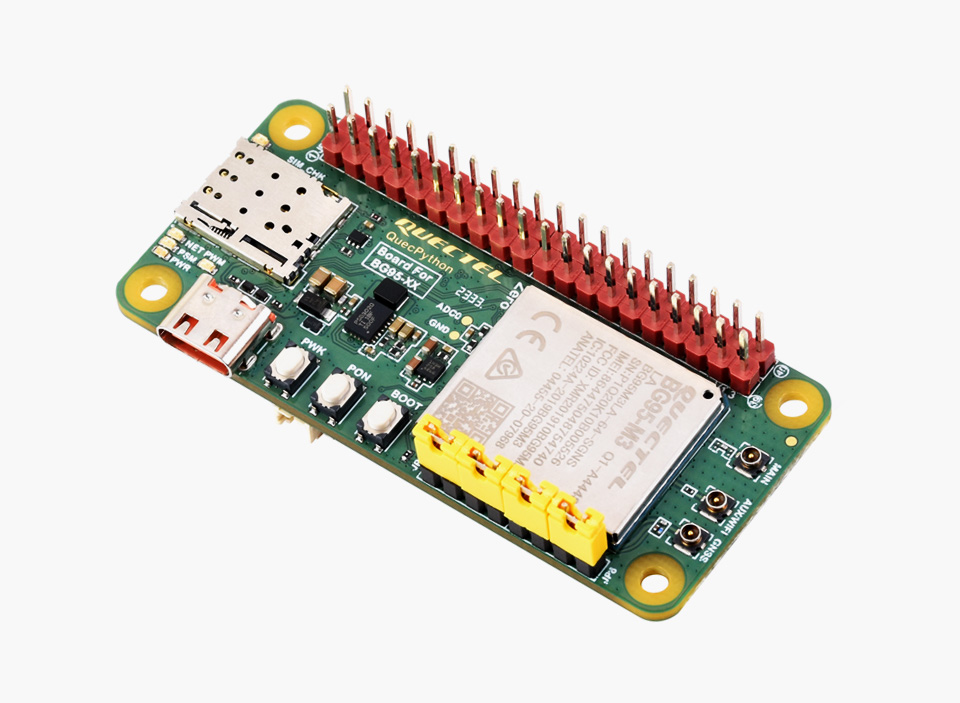
The BG95-M3 Zero development board is equipped with BG95-M3 module, which is a multi-mode LPWA module supporting LTE Cat M1 / LTE Cat NB2 / EGPRS. It is 3GPP Rel-14 compliant and offers maximum data rate of 588 kbps downlink and 1119 kbps uplink under LTE Cat M1. Features ultra-low power consumption with built-in MCP as well as the ARMCortex A7 processor supporting ThreadX.
| MODEL | BG95-M3 | EC200U-EU | EC200U-AU |
|---|---|---|---|
| Product Picture | 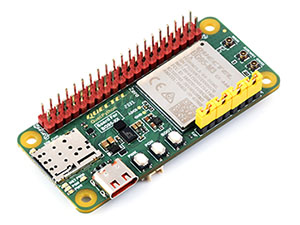 |
 |
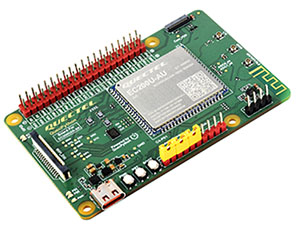 |
| Applicable Region | Global | Europe, Middle East, Africa, Australia, New Zealand, Brazil | Australia/Latin America |
| FREQUENCY BAND | |||
| LTE-FDD | Cat M1: B1, B2, B3, B4, B5, B8, B12, B13, B18, B19, B20, B25, B26, B27, B28, B66, B85 Cat NB2: B1, B2, B3, B4, B5, B8, B12, B13, B18, B19, B20, B25, B28, B66, B71, B85 |
B1, B3, B5, B7, B8, B20, B28 | B1, B2, B3, B4, B5, B7, B8, B28, B66 |
| LTE-TDD | N/A | B38, B40, B41 | |
| GSM / GPRS / EDGE | 850, 900, 1800, 1900 MHz | GSM: B2, B3, B5, B8 | |
| GNSS | GPS, GLONASS, BDS, Galileo, QZSS | ||
| Bluetooth | N/A | Bluetooth 4.2 (BR/EDR) | |
| Wi-Fi Scan | N/A | 2.4 GHz 11b (Rx) | |
| DATA TRANSMISSION | |||
| CAT 1 | N/A | LTE-FDD: DL 10 Mbps; UL 5 Mbps LTE-TDD: DL 8.96 Mbps; UL 3.1 Mbps |
|
| NB-IoT | Cat NB2: DL 127 Kbps; UL 158.5 Kbps Cat NB1: DL 32 Kbps; UL 70 Kbps |
N/A | |
| Cat-M | DL 588 Kbps; UL 1119 Kbps | N/A | |
| GSM / GPRS / EDGE | EDGE: DL 296 Kbps; UL 236.8 Kbps GPRS: DL 107 Kbps; UL 85.6 Kbps |
GSM: DL 85.6 Kbps; UL 85.6 Kbps | |
| OTHERS | |||
| Type-C USB Port | Supports AT commands testing, GNSS positioning, firmware upgrading, etc. | ||
| Communication Protocol | PPP, TCP, UDP, SSL, TLS, FTP(S), HTTP(S), NITZ, PING, MQTT, LwM2M, CoAP, IPv6 | TCP, UDP, PPP, NITZ, PING, FILE, MQTT, NTP, HTTP, HTTPS, SSL, FTP, FTPS, CMUX, MMS | |
| SIM Card | Nano SIM card (supports 1.8V only) | Nano SIM and eSIM, dual card single standby | |
| Indicator | SIM_CHK: lights up when a SIM card is inserted into the card slot NET: Network indicator PSM: Sleep indicator PWM: PWM function indicator PWR: Power indicator |
P01: Module Pin 1, default as EC200A-XX PWM0 P05: Module Pin 5, NET_MODE indicator SCK1: SIM1 detection indicator, lights up when SIM1 card is inserted SCK2: SIM2 detection indicator, lights up when SIM2 card is inserted PWR: Power indicator |
|
| Buttons | PWK: Power ON/OFF PON: PSM wake-up BOOT: Forcing into firmware burning mode USB ON/OFF: USB power consumption detection switch |
PWK: Power ON/OFF RST: Reset BOOT: Forcing into firmware burning mode USB ON/OFF: USB power consumption detection switch |
|
| Antenna Connectors | LTE main antenna + DIV antenna + GNSS antenna | LTE main antenna + DIV / WIFI (scanning only) / Bluetooth antenna + GNSS antenna | |
| Operating Temperature | -30 ~ 75°C | ||
| Storage Temperature | -45 ~ 90°C | ||
Easy To Develop With Just A USB Type-C Cable
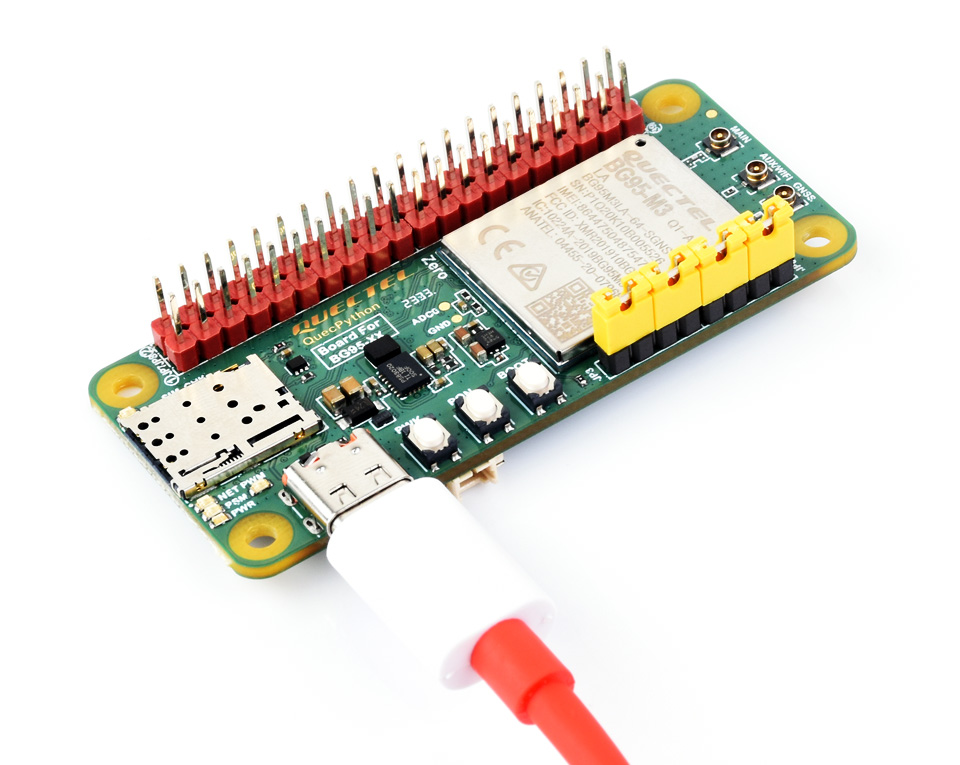
Compatible With Most Raspberry Pi HATs
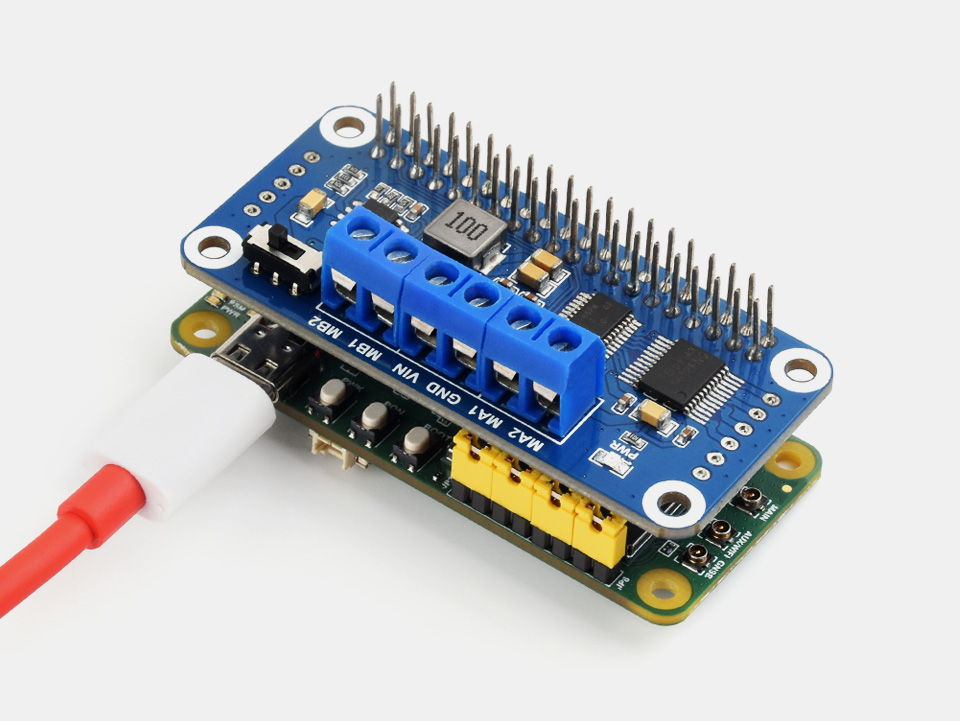
Provides Tools Such As QPYcom, Thonny IDE Plugin, And VSCode Plugin, Etc. For Easy Learning And Development
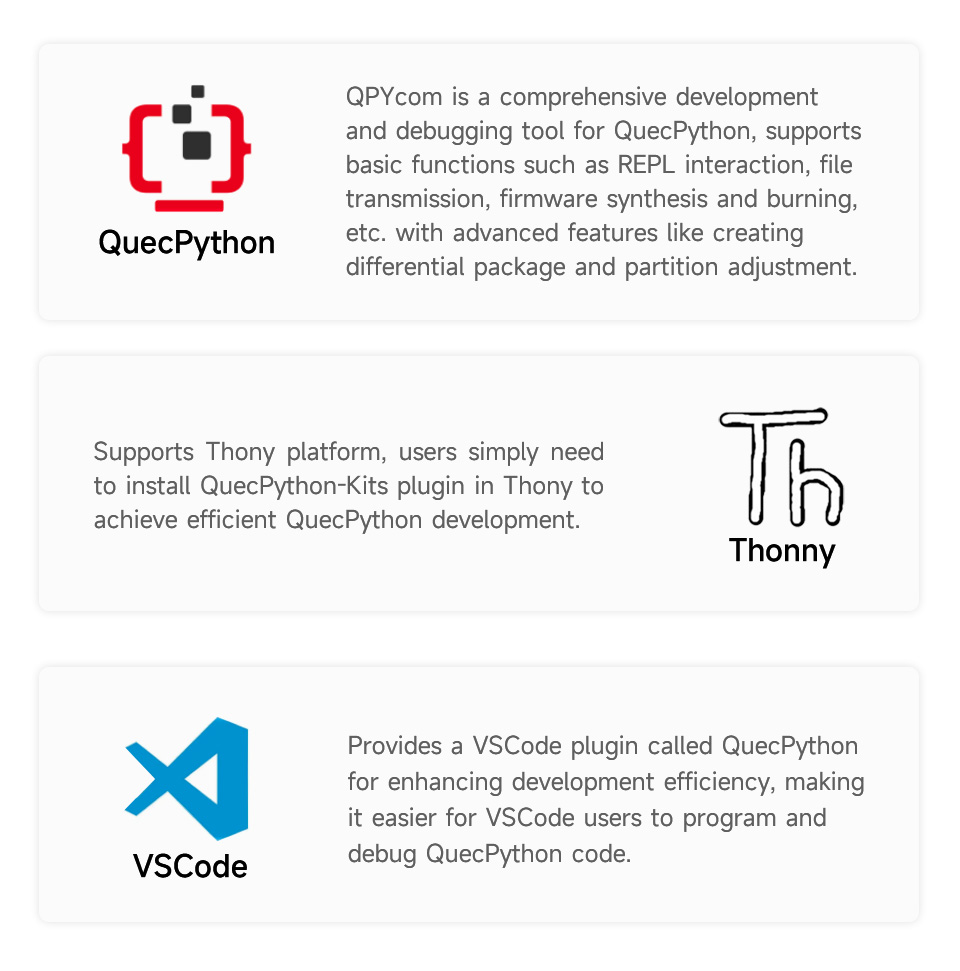
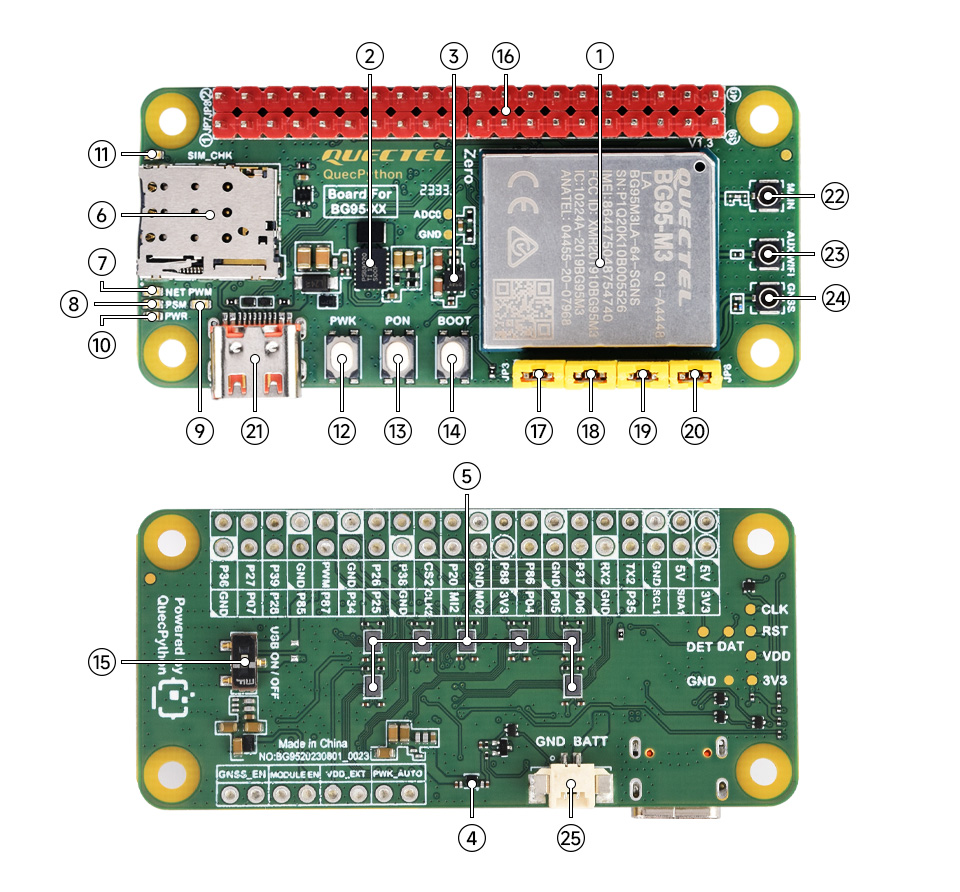
Onboard Components
Interfaces
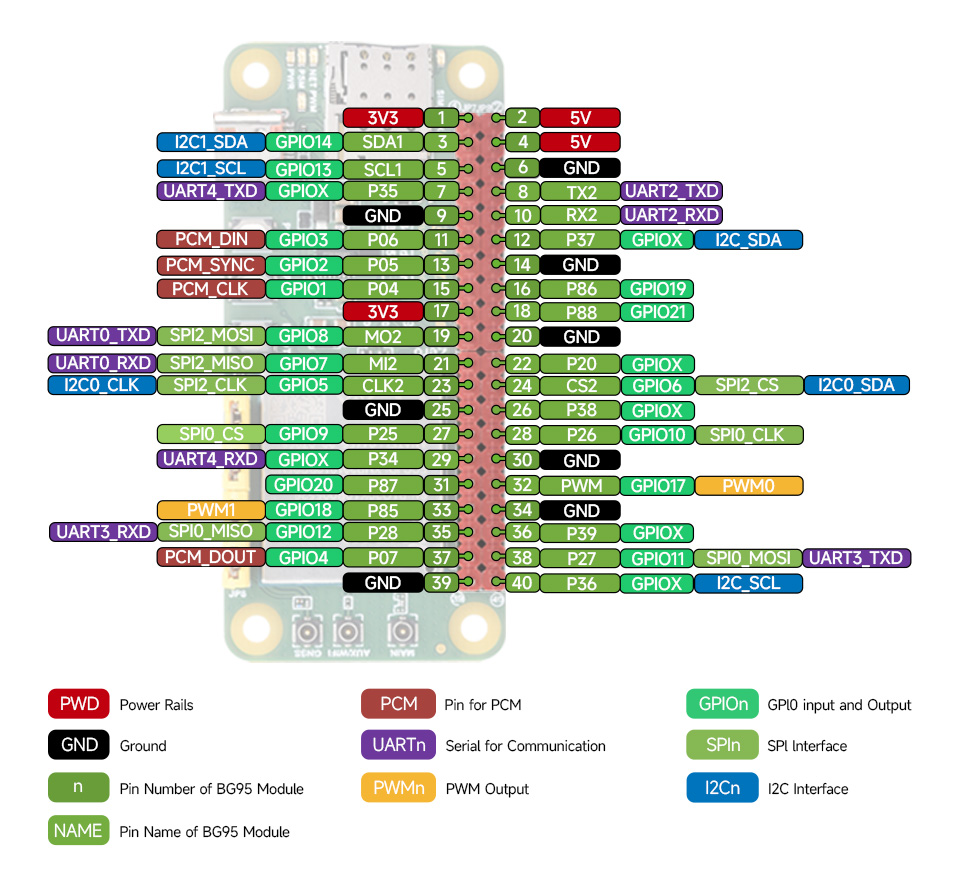
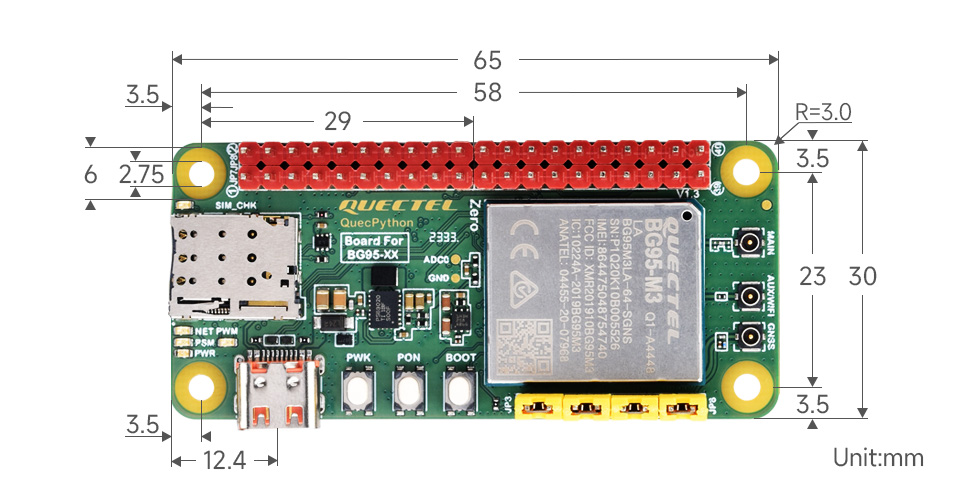

Balenie Obsahuje / Package Content
BG95-M3 Zero x1
